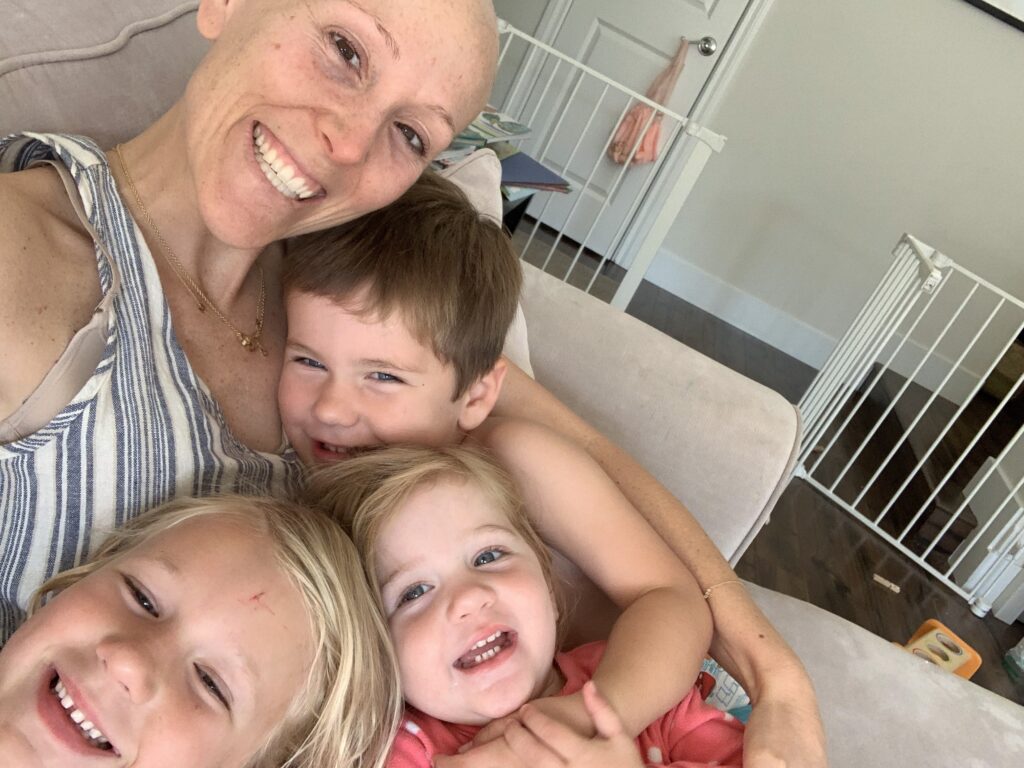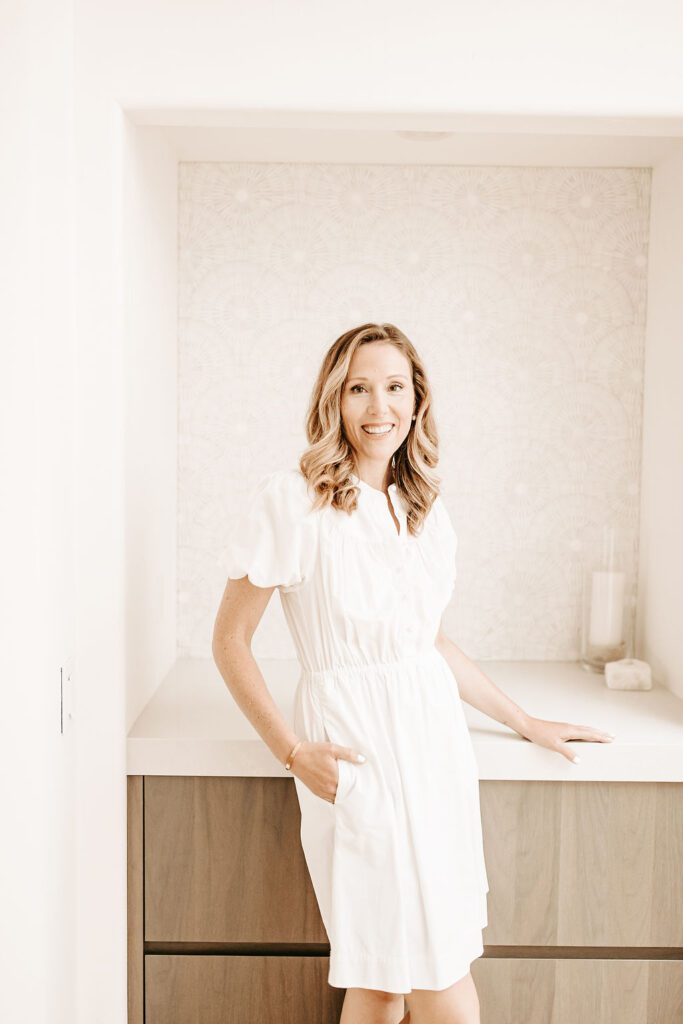Meet the Models, SoCal: Aidan Morris
Aidan Morris knew she would get breast cancer. Despite being BRCA negative, she had a strong feeling for years that she would be diagnosed, so much so that she was paying out of pocket for mammograms since the age of 27. Though she did have family history- her aunt’s diagnosis at 75 and mom around 60- Aidan’s proactivity was based off her strong inkling. Her relentlessness would pay off, when at age 34, a mammogram revealed breast cancer. By this time she was a mother to a 5, 3 and 17 month old and she describes the weekend after diagnosis to be one of her hardest. After a scan revealed the aggressiveness of her cancer, her husband, who attended Rice University, reached out to old contacts to see if anyone at MD Anderson Houston would be able to help. A doctor e-mailed them back and Aidan says, “they are why I am here today.”

Her treatments were aggressive. While chemotherapy was local in California, her radiation and surgeries were in Houston. It was grueling, but she says, “it was hard, but you get through it. I would go to bed after treatment and in a day or two I would be back in action simply because I didn’t have a choice.” She was able to finish the treatment in full and receive her single mastectomy. By comparison, the surgery was almost welcome: “for me the surgery was not that bad because it felt like a light at the end of the tunnel.” Unfortunately, doctors found further cancer in her lymph nodes, which meant more chemo and an impact to her chance of survival. While at one point being told she had a 25% chance of living (“that was a really dark day for my husband and I”), Aidan found the grit to pursue doctors and treatments that would ensure she was around for her family. She did chemo and radiation at the same time, moving her family to Houston to do so. Her husband traveled back and forth to visit them.
Towards the end of chemo, she noticed a mole on her toe. Always proactive, she saw her dermatologist who diagnosed her with Melanoma. The treatment led to a full toe amputation. Though shocking, in a roundabout way the experience helped Aidan with acceptance into an immunotherapy trial at MD Anderson. FDA approved for Melanoma at the time, doctors were finding it successful with breast cancer. Aidan’s Melanoma diagnosis got her an immediate spot in the trial. This past February, the immunotherapy was FDA approved for breast cancer, which Aidan says is proof “you just have to live one more year” when you’re battling the disease. After treatment, she received her remaining mastectomy and a final surgery to take muscle from her stomach to have it implanted into armpit for the lymphatic system.
With all she has faced, Aidan is extremely positive: “I think its all about what you make of it. We were lucky in that we were able to have a comfortable Houston experience. We ended up having the best time in Houston- zoos, parks- it was really focused family time. It was really stressful for my husband traveling back and forth and stressful for me because I didn’t want this cancer to eat me alive mentally, but the kids took my mind off it.” She notes that the entire experience put clearly into focus what mattered most. Aidan also notes how amazing the network of people were after diagnosis: “the one positive of cancer is the network that is there to help you-so many people connected me to people they knew who had breast cancer, or organizations that could help. It is a wonderful club that I never asked to be apart of”

When asked to reflect on her journey since 2019, she stresses how important it is for women to be proactive: “I cannot emphasize enough how lucky I was, but I was that way because I was proactive and it makes me angry that the standard of care is so much less for those who don’t have resources, or the ability to stand up for themselves.” Her experience, especially with a research hospital, has made her future purpose clear: “through all of this, my job was to get through it for my family and then to help other people out there. I feel like it’s my role to wake women up around me to be more proactive about their health.”
